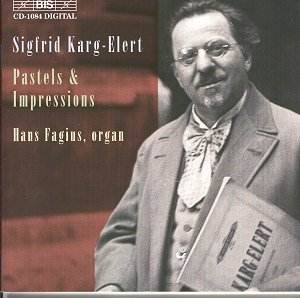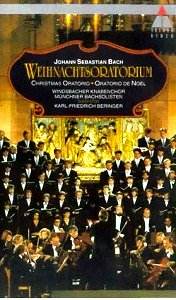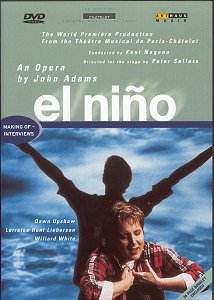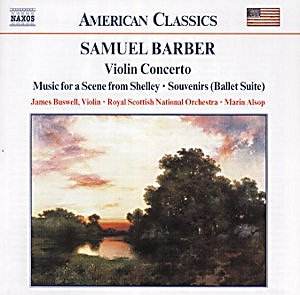 Composer: Sigfrid Karg-Elert
Composer: Sigfrid Karg-Elert
Works: Ach bleib mit deiner Gnade Op 87 No 1, Seven Pastels from the Lake of Constance Op 96, Eight Short Pieces Op 154, Trois Impressions Op 72, Passacaglia and Fugue on B.A.C.H Op 150
Performers: Hans Fagius (organ)
Recording: Recorded on the 1928 Frobenius organ of Aarhus Cathedral, Denmark, April 2000
Label: BIS
Sigfrid Karg-Elert, a composer whose oeuvre straddles the late Romantic and early modernist periods, presents a fascinating exploration of tonal color and texture in his organ works. This recording, featuring Hans Fagius on the 1928 Frobenius organ of Aarhus Cathedral, brings to light the intricacies and contradictions of Karg-Elert’s style. The selection of pieces showcases both the composer’s reverence for tradition and his adventurous spirit—a duality that can perplex yet enthrall listeners.
Fagius opens with “Ach bleib mit deiner Gnade,” a piece that both honors and extends Bach’s legacy through its rich harmonic language and dynamic contrasts. The performer’s nuanced touch allows for a palpable sense of line and phrasing, embodying Karg-Elert’s dramatic sensibilities while remaining anchored in the Baroque tradition. This interpretative approach sets a solid foundation for the more exploratory works that follow. The “Seven Pastels from the Lake of Constance,” composed around 1920, exemplifies Karg-Elert’s embrace of impressionistic techniques. Here, the influence of Debussy and Scriabin is palpable, particularly in the atmospheric “Landscape in Mist,” where Fagius deftly navigates the composer’s complex harmonic palette and inventive registrations. The fourth pastel, “The Reed-grown waters,” features a particularly effective use of reedy timbres that evoke the lush imagery of its title, demonstrating Karg-Elert’s ability to blend diverse stylistic elements into a coherent whole.
The “Eight Short Pieces,” while more concise, do not lack in depth. Fagius’s interpretation of the “Canzona solemne” stands out due to its vigorous articulation and robust tone, contrasting with the more introspective nature of the surrounding miniatures. The finale, a “Corale,” reveals Karg-Elert’s penchant for harmonic ambiguity, and Fagius’s handling of its broad dynamic range effectively maintains listener engagement without succumbing to predictability.
Fagius’s insights extend to the “Trois Impressions,” where he delivers a compelling reading of “La Nuit.” While some may argue that the Wagnerian overtones are too overt, Fagius manages to weave them into the fabric of the piece, creating an affecting yet cohesive narrative. His phrasing and pacing reflect an understanding of Karg-Elert’s late-Romantic language, allowing the emotional weight of the work to resonate deeply.
The disc culminates in the “Passacaglia and Fugue on B.A.C.H,” a work that, despite its sometimes diffuse nature, showcases Karg-Elert’s extroverted flair. Fagius imbues the performance with a sense of grandeur, navigating the work’s dramatic contours with skill. The conclusion, often criticized for its perceived weakness, is delivered with a vigorous conviction that defies its reputation, emphasizing the flamboyant character that Karg-Elert sought to convey.
The engineering of this recording merits commendation; the sound is both rich and clear, allowing the nuances of the Frobenius organ to shine through. The spaciousness of the acoustic enhances the timbral richness of Karg-Elert’s writing, effectively marrying instrument and repertoire in a manner that invites repeated listening.
This recording of Karg-Elert’s works not only illuminates the composer’s distinctive voice but also serves as a testament to Hans Fagius’s interpretative prowess. With its blend of tradition and innovation, the album invites listeners to explore the often-overlooked landscape of Karg-Elert’s music, affirming its place within the broader canon of early 20th-century composition. The juxtaposition of styles and the skillful execution found in this performance render it a significant contribution to the discography of this intriguing composer.



